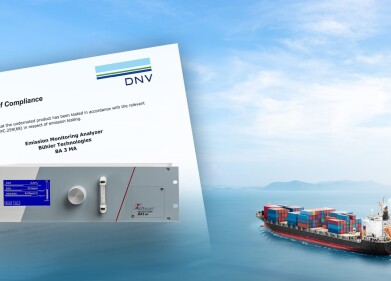Measurement and testing
How Are Lithium Ion Batteries Tested?
Sep 26 2022
From designing individual components to diagnosing issues like self-discharge and spontaneous combustion, testing is a critical part of developing lithium ion batteries that are safe and energy efficient. Manufacturers rely on a variety of advanced analytical techniques to test lithium ion batteries and ensure they perform as advertised, with no safety or efficiency concerns. Find out more about some of the different testing methods used below:
Fourier Transform Infrared Spectroscopy
This analytical technique uses absorption and emission patterns to collect high-resolution spectral data. Information is used to measure how much light a material absorbs at different wavelengths. Scientists use this to unlock detailed data about chemical bonds and their functional groups.
Analysing oxidative degradation patterns is one of the most useful applications for Fourier Transform Infrared Spectroscopy (FT-IR) analysis and imaging. A deep understanding of degradation patterns helps engineers understand more about how lithium ion batteries deteriorate over time.
Engineering EVs with FT-IR
Over the past decade, FT-IR has emerged as a valuable tool for electric vehicle (EV) manufacturers. The technique is combined with Attenuated Total Reflection (ATR) to analyse liquid electrolytes and observe ion transport patterns. Data is used to develop rapid-charge electrolytes that aren’t plagued by common safety and performance issues. For example, a significant reduction in charge capacity over a short period of time.
“The ability to charge a Li-ion battery at high charging rates is critical for electric vehicle adoption; however, further study of ion transport is required to develop electrolytes suitable for fast charge,” reads a study published in the Journal of The Electrochemical Society. Slow charge times have been identified as a major barrier to EV uptake around the world. Studies like this aim to address the issue and develop EV charge technologies that are fast and safe. It's these kinds of advances that will help the world transition to cleaner and more eco-friendly alternative energy technologies.
“Improving the performance and safety of fast charging is critical for electric vehicle charging in approximately the same amount of time required to refuel an internal combustion engine vehicle,” write the authors. “While fast charging requires innovations in electrodes, electrolytes, and battery management systems, researchers are increasingly focused on developing electrolytes with sufficient ionic transport, electrochemical stability, and thermal stability for fast charging.”
Gas Chromatography Mass Spectrometry
Physical characteristics have a direct impact on the performance of lithium ion batteries. Gas Chromatography Mass Spectrometry (GC/MS) is one of the easiest and most accurate ways to carry out compositional testing of energy materials and analyse the physical characteristics of lithium ion batteries. The technique is particularly useful for analysing electrolytic solutions, which contain both cyclic and chain carbonates. These can include propylene carbonate and ethylene carbonate, as well as ethyl methyl carbonate and diethyl carbonate. GC/MS is used to detect and quantify these carbonates. Insight is important as carbonate concentrations can have a big impact on the overall performance of a lithium ion battery.
Want to know more about the science behind lithium ion batteries? We cover general anatomy, as well as other topics like the benefits of lithium ion batteries and common issues associated with the technology in our complete guide, ‘Lithium Ion Batteries: Types, Testing & Uses’.
Digital Edition
PIN 26.1 Feb/Mar 2025
March 2025
Analytical Instrumentation - Elemental Analysis for Quality and Process Control at Refineries, for Lubricants and Wear Metals in Engine Oils - Synthetic Lubricants: New Developments - Scaling...
View all digital editions
Events
Apr 14 2025 Moscow, Russia
Apr 15 2025 Moscow, Russia
Apr 22 2025 Hammamet, Tunisia
Apr 22 2025 Kintex, South Korea
Solar & Energy Storage Summit 2025
Apr 23 2025 Denver, CO, USA



















